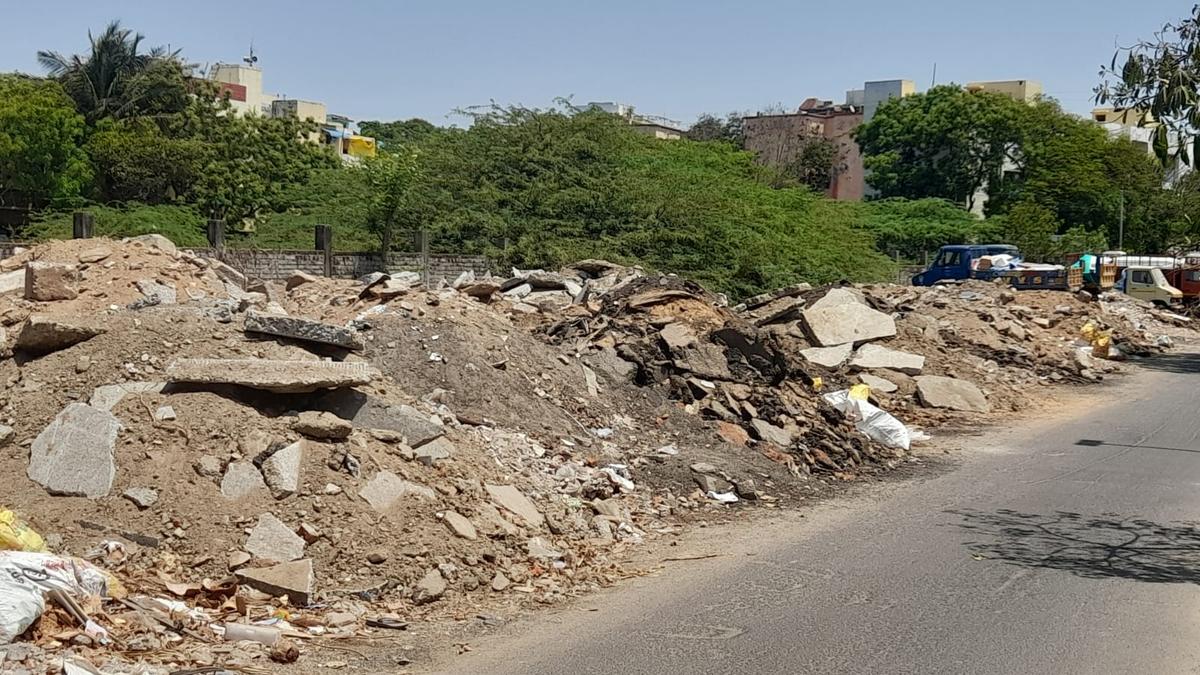
Greater Chennai Corporation identifies 25 hotpots where construction debris gets dumped regularly
The Hindu
Chennai struggles with illegal dumping of construction debris in public areas, prompting GCC to identify hotspots for enforcement.
Construction debris continues to be dumped in many public places across the city, with the Greater Chennai Corporation (GCC) identifying 25 hotspots.
GCC Commissioner J. Radhakrishnan said repeated dumping of debris was taking place mainly in parks and their vicinities and near Metro Rail stations. “Debris continues to be dumped in the pathways behind Arupadai Veedu Murugan temple in Besant Nagar. This has been going on since 2018. Initially, they were dumping small amounts, but now, they dump large amounts of debris,” said G. Surendran, a resident of the area.
The debris was temporarily cleared for laying a road, which itself is a violation, he says. “If the road is laid, heavy vehicle movement will begin and debris may be dumped in several places inside the area,” he said.
Valmiki Nagar in Thiruvanmiyur is another hotspot. “Roughly seven to eight months ago, over 50 tonnes of waste was cleared by the Corporation. But the waste reappeared soon after and has only been increasing since,” says Jayanthi Premchandar of the Valmiki Nagar Residents’ Welfare Association.
Social media has been rife with complaints about debris being illegally dumped near places including Vadapalani Metro station, Mambalam Canal, and several other parts of T. Nagar.
According to J.M.S. Nagarjunan, General Secretary of the Alliance of Residents’ Welfare Associations, besides garbage, construction debris is also found in several crematoria across the city, of which some have been cleared recently. The GCC should inspect all crematoria and clear all the debris, he demanded.
The Solid Waste Management (SWM) by-laws in the city require construction and debris (C&D) waste generators to plan disposal processes before starting projects. They can either use GCC-designated sites for dumping or hire authorised contractors for collection and disposal. Fines ranging from ₹2,000 to ₹5,000 could be imposed against violators.

The girl, who was admitted to Aster CMI Hospital with alarming breathlessness and significant pallor, was diagnosed with Wegener’s Granulomatosis (now known as Granulomatosis with Polyangiitis or GPA), a rare autoimmune condition that causes spontaneous bleeding in the lungs, leading to acute respiratory failure.

ACB files case against IPS officer N. Sanjay in Andhra Pradesh. The official is accused of manipulating the tender processes for awarding contract for development and maintenance of AGNI-NOC portal, and conducting awareness meetings for SC/STs. It is alleged that the total value of properties stolen, or involved in the case is estimated at ₹1,75,86,600.









